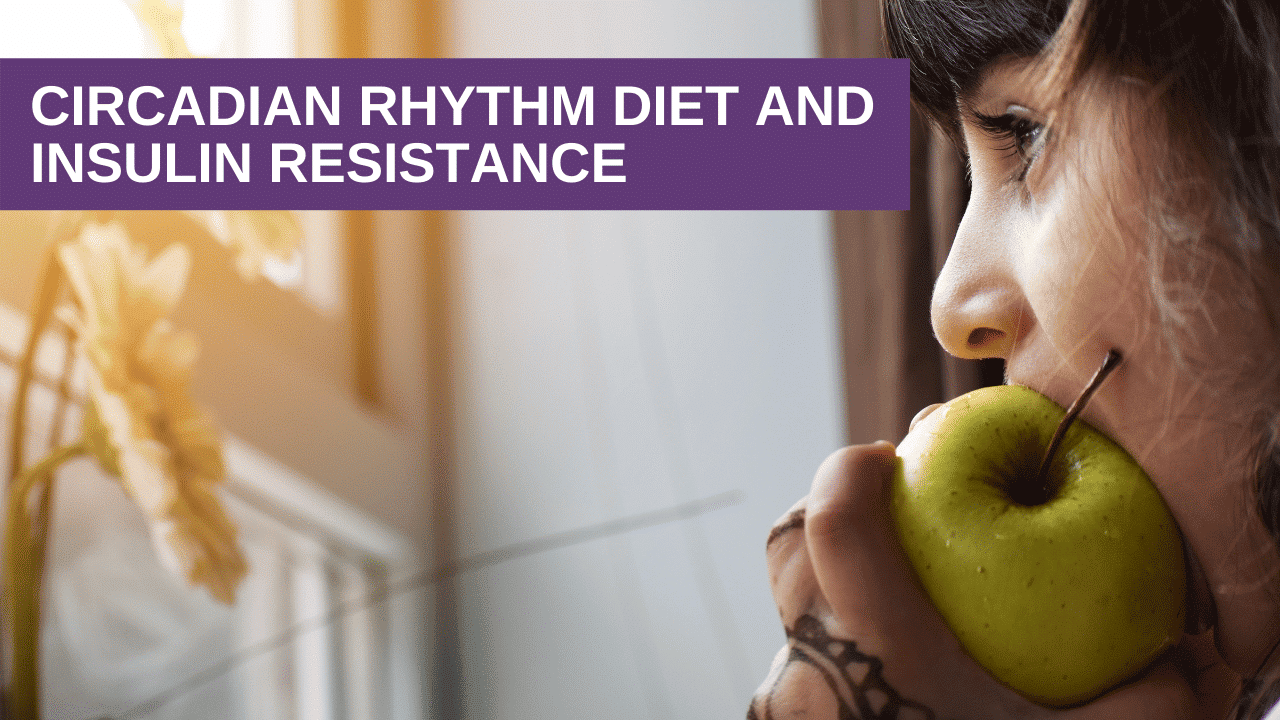You’ve heard about intermittent fasting. But have you heard of the circadian rhythm diet and how it can help you reverse insulin resistance?
So what is a circadian rhythm diet?
A circadian rhythm diet is a form of intermittent fasting, that actually follows the biological clock of your body. Normally, with intermittent fasting, you consume all of your food within a designated period of time.
The idea behind this diet is to help reset your metabolism. The circadian rhythm diet uses your natural body rhythms to help reset your metabolism. As well as reverse insulin resistance and lose weight. Fasting occurs during the natural nocturnal time when your body is at its lowest metabolism. It is also the best time for it to detox.
The circadian rhythm diet means you do not eat after dark. Fast from sunset to sunrise.
I have prescribed this form of intermittent fasting for my patients for almost twenty years. Why? Because there are three really amazing health benefits to circadian rhythm diet.
Lose Weight
When you don’t eat after dark, you’ll find that you’re able to burn the calories that you consume during the day more efficiently. Also, you are finally able to drop that extra weight. Your metabolism is at its slowest after dark, so it’s best not to consume calories during this time to help you to lose weight. Though this is simple, it isn’t quite so easy. Many of us have become accustomed to consuming something with calories after dinner. But with a little discipline, it is a habit that is easy to adopt. You’ll notice that you’ll wake up very hungry in the morning.
This is a good thing and leads us to our second reason why the circadian rhythm diet is good for you.
Reverse Insulin Resistance
Insulin resistance is a condition where your cells are no longer sensitive to insulin and do not allow insulin or glucose in. When the insulin receptor is activated by the insulin molecule, not only is glucose let in, but the cell opens up gateways for water, amino acids, and fatty acids. So when you become insulin resistant, you’re not just resistant to sugar, you’re resistant to amino acids, fatty acids, and water which causes malnutrition for your cells. Insulin resistance can lead to full-blown diabetes. And it definitely causes inflammation, leading to other metabolic disorders.
The circadian rhythm diet helps reverse insulin resistance. Nighttime is when your cells become more sensitized to insulin under the influence of melatonin. However, this cannot happen if you’re still in the process of digesting food consumed after dark. You’ll have a surge of glucose and insulin, preventing melatonin form effectively sensitizing your cell receptors’ to insulin.
When you stop the consumption of all food and caloric drinks after dark, it can make a huge difference in the reversal of your insulin resistance. This allows your natural biochemistry to actually help sensitize your cells to insulin.
After weeks of following a circadian rhythm diet, you’ll begin to notice that you’re hungry in the morning, whereas most people with insulin resistance aren’t.
Waking up hungry is a very good sign that you’re becoming more sensitive to insulin. At dawn, your blood sugar is low, which triggers your hypothalamus to start breaking your fast. Your hypothalamus is stimulated into daytime mode when the sun rises. Your hypothalamus notices your low blood sugar, and stimulates your adrenals to produce cortisol to release stored sugar. The circulating blood sugar feeds your hypothalamus, but your hypothalamus knows that sugar won’t last long and immediately stimulates your hunger to get you to break your fast, or in other words, eat breakfast.
Sleep Better
The third thing that’s really important about the circadian rhythm diet is that by fasting after dark, you’re going to sleep a lot better. This is because digestion takes a lot of energy. Digestion takes energy away from the important nocturnal activities that your body needs to do, such as detoxification, as well as proper immune system functioning. If your immune system is competing with your gut for energy, the immune system can’t do its job properly. Plus, food eaten late at night tends to sit in the gut, leading to indigestion and GERD – gastroesophageal reflux disorder.
Also, the liver has to work way too hard at night when you eat and drink after dark. Sometimes, an overworked liver will wake you up in the middle of the night. By fasting after dark, you’ll find that your sleep is uninterrupted by your digestive tract.
Now, it’s a little hard in the beginning to fast after dark. You may feel a little hungry in the middle of the night, but eventually, your body will get used to it and you’ll find that you sleep much deeper. And of course, better sleep means more daytime energy and more efficient metabolism.
If you’re interested in learning more about the circadian rhythm diet, join us in our hormone support group, where I answer your questions live. You can access the group by signing up for my free Hormone Reboot Training.
Research Reference: Chronic sleep deprivation-induced proteome changes in astrocytes of the rat hypothalamus, Exercise protects against high-fat diet-induced hypothalamic inflammation,Hypothalamic inflammation: a double-edged sword to nutritional diseases
*Statements not reviewed by the FDA.



0 Comments